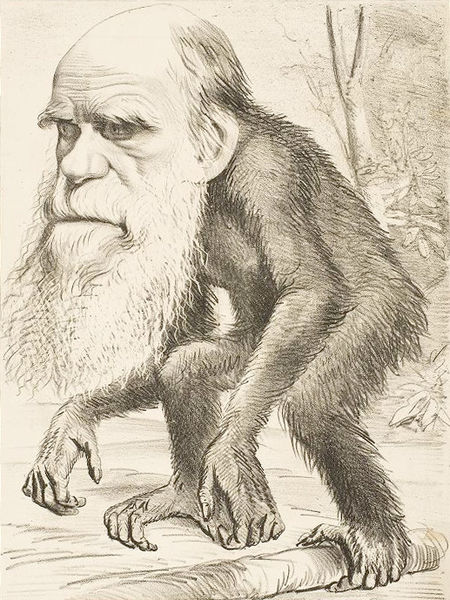Happy birthday Charles Darwin!
 Today is Darwin Day.
Today is Darwin Day.
Darwin Day is celebrated around the 12th of February every year in honour of the birth of Charles Robert Darwin. As you probably know, Darwin came up with the theory of evolution, which is widely, but not universally, accepted as explaining how species adapt and evolve. The Theory of Evolution has itself evolved from Darwin’s first musings. A century and a half ago when he wrote On The Origin of Species, he didn’t know about DNA and genes, but he could see patterns that were transmitted from parent to child. He talked about natural selection and the effects it has over time.
People who believe in the literal interpretation of the Bible have no place in their world for the Theory of Evolution as their world was created a little over 4000 years ago in 7 days. But there are a lot of people, including a lot of scientists, who are comfortable with their religious beliefs yet believe in the Theory of Evolution because it is based on scientific process.
Darin has written an excellent piece about Charles Darwin, the Theory of Evolution and other scientific theories that have enough evidence that they should be called “laws” that’s worth checking out.
A tip o’ the hat to Wikipedia for the caricature called “A Venerable Orang-outang”, depicting Charles Darwin as an ape that was published in The Hornet, a satirical magazine, on March 22, 1871.



 AKA Keeper of Maps, I'm a geocacher who lives in Ottawa, Canada.
AKA Keeper of Maps, I'm a geocacher who lives in Ottawa, Canada.
